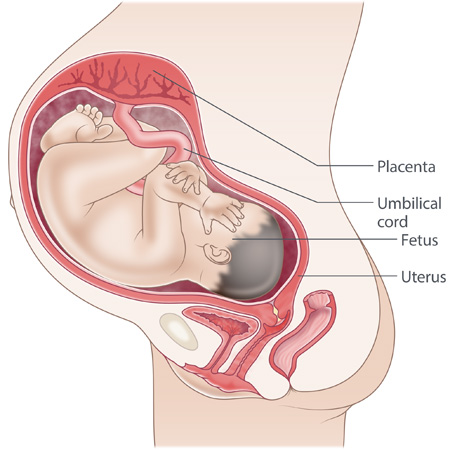
38 Weeks Pregnant: A Comprehensive Guide
Introduction
Reaching the 38th week of pregnancy marks a significant milestone in your journey towards motherhood. As your due date approaches, your body and baby undergo remarkable transformations in preparation for labor and delivery. This article provides a comprehensive guide to the physical, emotional, and medical aspects of 38 weeks pregnant, empowering you with the knowledge and support you need to navigate this exciting and transformative time.
Physical Changes
- Enlarged Abdomen: Your uterus continues to expand, accommodating your growing baby. The top of your uterus (fundus) is now approximately 2-3 inches below your rib cage.
- Weight Gain: By this stage, you have likely gained between 25-35 pounds. Weight gain is primarily due to the baby’s growth, increased blood volume, and amniotic fluid.
- Swelling (Edema): Fluid retention can cause swelling in your hands, feet, and ankles. Avoid excessive salt intake and elevate your legs to reduce swelling.
- Back Pain: The weight of your abdomen can strain your back, leading to discomfort. Practice good posture and use support pillows for relief.
- Constipation: Progesterone levels can slow down digestion, causing constipation. Stay hydrated, eat fiber-rich foods, and consider using a stool softener if necessary.
- Frequent Urination: The baby’s head may be pressing on your bladder, increasing the frequency of urination.
- Vaginal Discharge: You may experience an increase in vaginal discharge, which is typically clear or white. If the discharge becomes yellow or foul-smelling, consult your healthcare provider.
- Braxton Hicks Contractions: These irregular contractions are your body’s way of preparing for labor. They are usually painless and subside within a few minutes.
Emotional Changes
- Nesting Instinct: Many women experience a strong urge to prepare their home for the baby’s arrival. This includes cleaning, organizing, and setting up the nursery.
- Anxiety and Excitement: As the due date approaches, it is normal to feel a mix of excitement and anxiety. Talk to your partner, family, or friends about your feelings and seek support if needed.
- Mood Swings: Hormonal fluctuations can cause mood swings and irritability. Practice self-care techniques such as meditation, yoga, or spending time in nature.
- Insomnia: Difficulty sleeping is common due to physical discomfort and anxiety. Establish a regular sleep schedule, create a relaxing bedtime routine, and avoid caffeine and alcohol before bed.
Medical Considerations
- Prenatal Appointments: Continue attending regular prenatal appointments to monitor your health and the baby’s growth. Your healthcare provider will check your blood pressure, weight, and urine. They will also perform a physical exam and listen to the baby’s heartbeat.
- Ultrasound: If necessary, your healthcare provider may order an ultrasound to assess the baby’s position, size, and amniotic fluid levels.
- Non-Stress Test (NST): This test measures the baby’s heart rate and movement in response to contractions. It is used to assess the baby’s well-being and identify any potential concerns.
- Biophysical Profile (BPP): This test combines an ultrasound with an NST to provide a more comprehensive assessment of the baby’s health.
- Membrane Sweep: This procedure involves gently separating the amniotic membranes from the cervix. It can sometimes help to induce labor if you are close to your due date.
Preparing for Labor
- Create a Birth Plan: Discuss your preferences for labor and delivery with your healthcare provider. This includes your choice of pain management, delivery position, and any special requests.
- Pack Your Hospital Bag: Pack a bag with essential items for you and the baby, including clothing, toiletries, and any medications you need.
- Arrange Childcare: Make arrangements for childcare for any older children during labor and delivery.
- Rest and Relax: Take advantage of the time before labor to rest and relax. Get plenty of sleep, eat healthy meals, and engage in activities that bring you joy.
Signs of Labor
- Regular Contractions: Contractions that occur at regular intervals and gradually increase in intensity and duration.
- Water Breaking: The amniotic sac ruptures, releasing a gush of fluid.
- Bloody Show: A small amount of blood-tinged mucus is released from the vagina.
- Backache: A persistent backache that does not improve with rest.
- Pelvic Pressure: A feeling of pressure or heaviness in the pelvis.
Conclusion
Reaching 38 weeks pregnant is a significant milestone in your pregnancy journey. By understanding the physical, emotional, and medical aspects of this stage, you can prepare for labor and delivery with confidence. Remember to listen to your body, communicate openly with your healthcare provider, and embrace the transformative experience that lies ahead. As you approach the final stretch of your pregnancy, cherish the moments and anticipate the arrival of your precious little one.